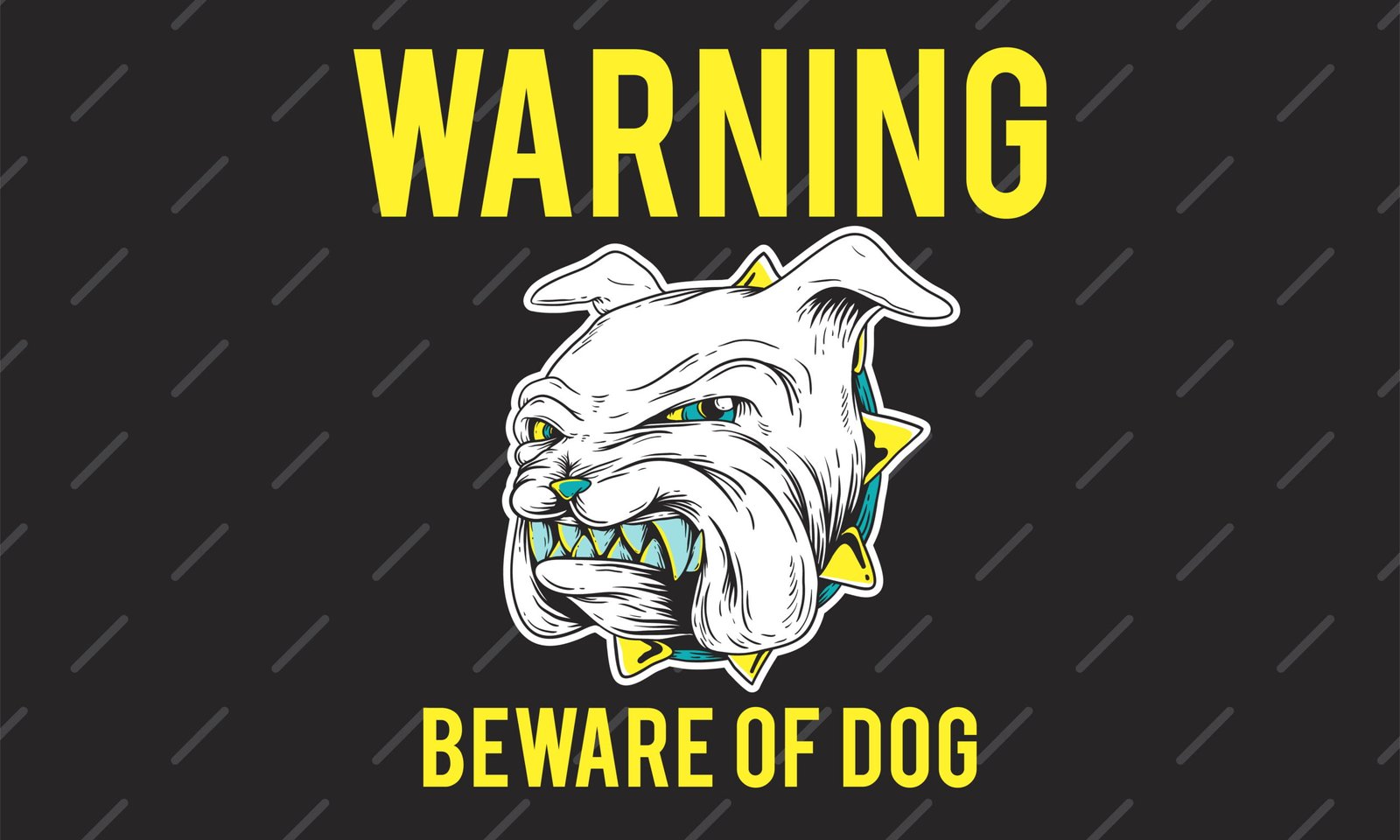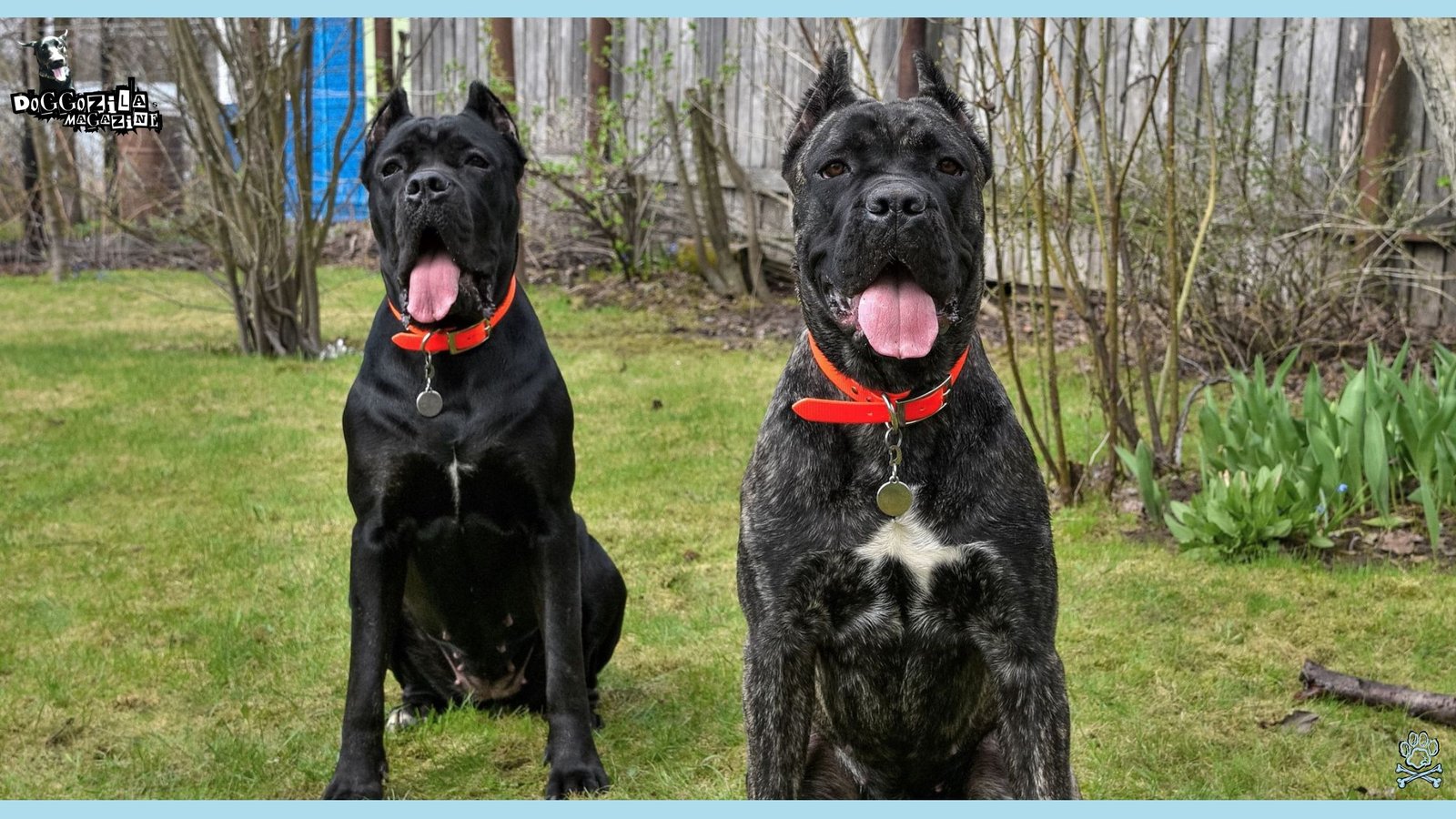Numerous families adopt dogs to safeguard their loved ones and homes. However, many people choose the wrong breed for this purpose. Let’s explore how different dogs react to potential threats like thieves or home invasions!

HOW DOGS REACT AND RESPOND IN SITUATIONS INVOLVING THIEVES OR HOME INVASIONS
How Alert and Aggressive Dogs React to Thieves
Certain dog breeds possess natural alertness and aggression. They’ll loudly bark, fiercely growl, and attack anyone unauthorized entering their territory. These breeds often serve as guard dogs or watchdogs, deterring or stopping potential intruders with their intimidating presence and behavior.
Some alert and aggressive breed examples include:
- German Shepherd: These intelligent, loyal, confident, and courageous dogs rank among the most popular guard breeds. They have a strong protective instinct, willingly safeguarding their family and home, even sacrificing their lives. Highly trainable, they obey commands and recognize threats.
- Rottweiler: Powerful and muscular, Rottweilers fearlessly guard their territory. They’ll confront invaders without hesitation, driven by their strong protective instinct. Though loyal to owners, they remain wary of strangers.
- Doberman Pinscher: Sleek and elegant, Dobermans boast keen alertness and a high drive to protect. Quick and agile, they effectively chase and catch intruders. Intelligent and obedient, they can also be dominant and independent.
These breeds’ aggressive demeanor, coupled with their unwavering loyalty and protective nature, make them formidable guardians against thieves or home invasions. Their presence alone can deter potential threats, while their fearless actions safeguard loved ones and property.

How Gentle and Friendly Dogs React to Thieves
In contrast, some breeds have a gentle, friendly temperament. They may bark to alert their owners, but are less likely to act aggressively towards intruders. These dogs prioritize companionship over guarding duties.
Examples of gentle, friendly breeds include:
- Labrador Retriever: Known for their affectionate, outgoing nature, Labradors make excellent family companions. While they may bark to signal potential danger, they’re unlikely to attack unless adequately trained for protection.
- Golden Retriever: With their friendly, patient dispositions, Golden Retrievers often greet strangers warmly. They can alert owners to unusual occurrences but rarely display aggressive behavior towards intruders.
- Cavalier King Charles Spaniel: These small, gentle dogs thrive on human companionship. Though they may bark at unfamiliar sounds or people, they lack the intimidating presence or aggression required to deter intruders effectively.
While gentle breeds provide loving companionship, they may not reliably defend against thieves or home invasions without specialized training. Their friendly nature could potentially put them and their owners at risk in such situations.

How Indifferent Dogs React to Thieves
In contrast, certain dog breeds exhibit a naturally indifferent disposition. They may ignore or avoid strangers or intruders unless directly threatened or if their owners are endangered. These breeds are often employed as hunting companions or working dogs, possessing a strong sense of independence and a fervent drive to perform their designated tasks.
Unfamiliar individuals or perceived intruders do not garner much reaction from these canines unless posing an immediate threat to themselves or their owners. Bred for specific hunting or working roles, these dogs possess an inherent independence and unwavering focus on their assigned duties.
Some examples of indifferent breeds are:
- Beagle: Beagles are small and sturdy dogs that have a keen sense of smell and a high energy level. They were created to hunt rabbits. They are focused on following scents rather than guarding their home. They are also friendly and curious, but not very loyal or obedient.
- Siberian Husky: Siberian Huskies are medium-sized dogs that have a thick coat and striking eyes. They were bred to pull sleds in harsh climates, making them resilient, athletic, and adaptable. They are also friendly and sociable, but not very territorial or aggressive.
- Greyhound: Greyhounds are large and slender dogs that have a graceful appearance and a remarkable speed. They were bred to chase prey over long distances, making them agile, fast, and focused. They are calm and gentle, but not very alert or protective.
These are some of the ways how dog breeds react to thieves and home invasion. This is based on their temperament, size, and training. Remember that every dog is different. They may have different reactions depending on their personality, experience, environment, and situation. Check how your dog will react is to observe their behavior and train them accordingly.

MOST ASKED QUESTIONS ABOUT HOW DOGS REACT TO THIEVES: PROTECTING YOUR HOME AND UNDERSTANDING DOG GUARDIAN INSTINCTS
Dogs have long been our trusted companions, and they often serve as protectors of our homes. Further in this article, we’ll delve into the most asked questions about how dogs react to thieves, the instincts that drive their protective behavior, and how you can best utilize their guardianship to keep your home secure.
Dogs as Home Guardians
For many years, dogs have been greatly valued. They have been loyal companions, yes. But they have also served as guardians, protecting our homes and families. Their protective instincts have made them great allies. They help ensure home security.
How Do Dogs React to Thieves?
- Guardian Instincts: All dogs have a natural guardian instinct. This instinct makes them want to protect their territory and loved ones. This instinct can show itself in many ways. Dogs may alert their owners to intruders. Or they may show more assertive protective behaviors.
- Warning Signs and Protective Behavior: There are signs a dog is reacting to a threat. They may bark, growl, raise their hackles, or take a defensive stance. Protective behavior can range from warning the intruder to taking action. Assertive dogs may do more to protect their family.

COMMON QUESTIONS ABOUT DOGS AND HOME SECURITY
Are all dogs natural protectors?
While many dogs do have guardian instincts, not all are natural protectors. Breeds with a history of guarding or protection tend to show these instincts more. Guard dogs like German Shepherds often make great home protectors.
How can I train my dog to be a better guardian?
To train your dog as a guardian, you should teach commands. Socializing them and exposing them to situations is key. A professional dog trainer can help develop their protective skills.
What if my dog is too friendly with strangers?
If your dog is overly friendly, you’ll need balance. You want them sociable but able to protect. With training, your dog can learn to distinguish friends from threats. Reinforcement helps build their protective instincts.
Having a dog can bring great peace of mind. With their loyalty and protective nature, they make excellent home guardians. Their keen senses alert you to potential dangers. And their bravery gives you an extra layer of security.
UTILIZING YOUR DOG’S PROTECTIVE INSTINCTS
- Training for Specific Scenarios: You can train your dog to react appropriately in specific situations. For example, teaching them to bark on command or stay alert when someone approaches your property.
- Deterrence Through Presence: Simply having a dog can be a significant deterrent to potential thieves. Most burglars prefer to avoid homes with dogs, as the risk of getting caught is higher.
- Balance Between Protection and Sociability: It’s important to strike a balance between your dog’s protective instincts and their ability to socialize with others. Encouraging positive interactions while maintaining their protective awareness is key.
The Dog Guardians of Our Homes
In conclusion, dogs serve as remarkable guardians of our homes, with their protective instincts and loyalty. Understanding their reactions to potential threats, harnessing their protective skills, and striking a balance between protection and sociability can help you fully utilize your dog’s role as a home protector.
Your relationship with your dog is a partnership, and their protective role is an extension of your bond. By recognizing their instincts and training them effectively, you can ensure that your dog not only brings joy but also security to your home.
If you find this topic interested, we recommend to continue reading dogs as livestock guardians!









